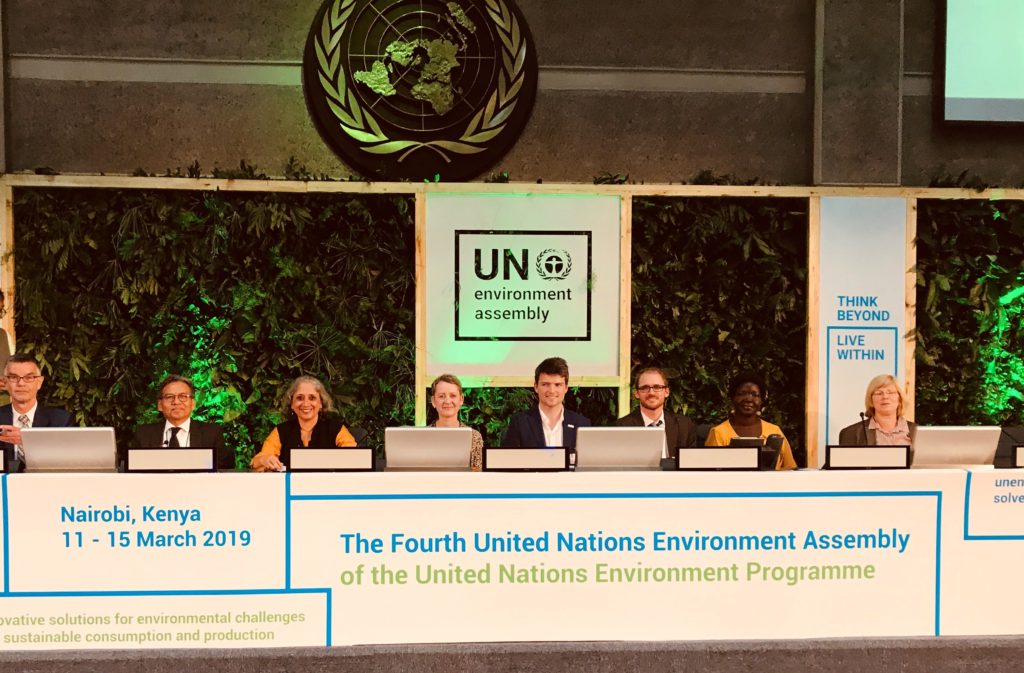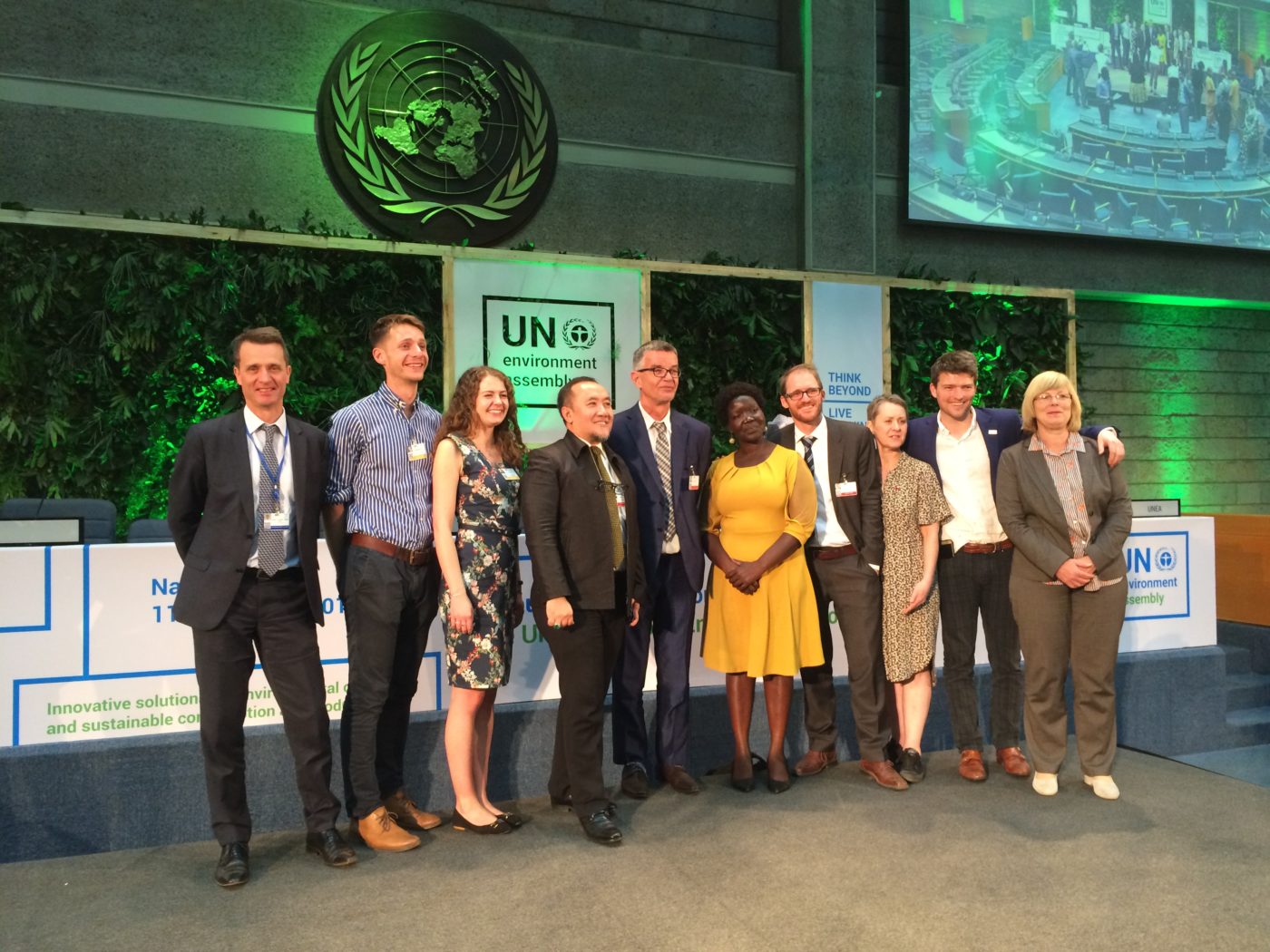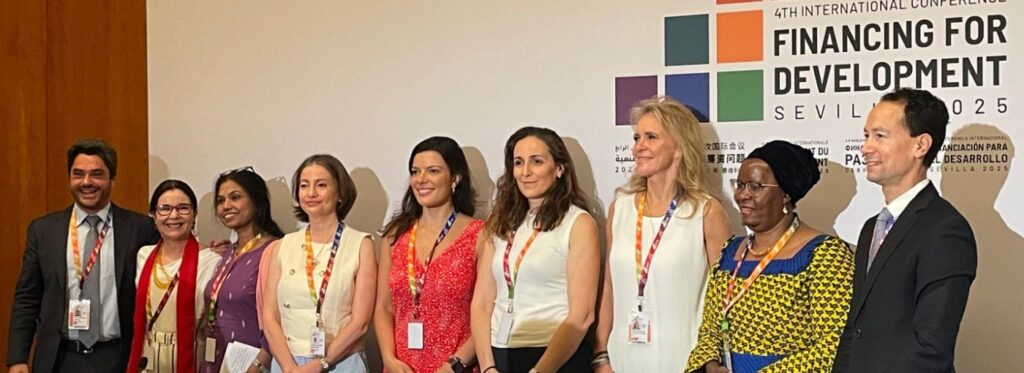By Immaculate Yossa and Nout van der Vaart
Nout van der Vaart and Immaculate Yossa report back from the Fourth session of the UN Environment Assembly
There is an inextricable link between food production and consumption, and the health of our environment. While this two-way relationship has long gone largely unseen, the awareness of how these sectors interconnect is slowly building.
The FAO’s new report State of the World’s Biodiversity for Food and Agriculture (PDF) underscores the threat of biodiversity loss to food security and resilient food systems. The study highlights that the alarming decline of critical species of plants and animals makes the way we produce and consume food one of the greatest challenges of our time.
The link between the environment’s fast-depleting resources and the way food is produced and consumed was also echoed at last week’s fourth UN Environment Assembly (UNEA). Described as the world’s highest-level decision-making body on the environment, the session brought together 4,700 delegates from governments, UN bodies, private sector, civil society and academia.
Amid universal agreement for the urgent need to shift to a more sustainable future, the assembly acknowledged conservation and sustainable use of biodiversity as a significant contributor to climate change adaptation and mitigation, and key for food security and nutrition. It also called upon all member states to increase collaboration with the UN One Planet Network – the official implementing vehicle for SDG12 – to achieve Sustainable Consumption and Production. There were two emerging, resounding messages:
The current food system is broken and not working for people or planet. Production systems are exacerbating climate change and biodiversity loss, and also failing to make diverse, healthy and nutritious food accessible to all.
Hivos and other actors working on the UN One Planet Network Sustainable Food Systems Programme – a global multi-stakeholder initiative promoting an integrated approach to food policy-making – welcomed the UNEA’s acknowledgment that: food systems are a driver for land conversion and biodiversity loss.
Ways forward
In the various side events that revolved around the nexus of food and the environment, participants drew out key ways to accelerate the transformation of our food system. These included: a) integrated landscape management to improve stakeholder collaboration to achieve sustainable landscapes; b) dietary shifts to decrease pressure on natural resources while improving public health; c) proactive leadership from governments to create an enabling (policy) environment, and d) increased finance flows to boost investment in nature-based solutions. In the agriculture sector, efforts to adapt to climate change must be on an equal footing with action that mitigates the impacts of climate change.
Champions for change
Identifying and empowering champions to play a central role in transforming the food system is a key way to drive real change. Breaking down silos – within governments and across sectors – is critical for a much-needed overhaul of our food system. Dr. David Nabarro, curator of the Food System Dialogues, (a dialogue series providing space for discussions on food systems policies and practices occurring in the margins of international meetings that focus on sustainable development and food systems) emphasised this. He says: “For more effective and integrated food policies, we need to include all people, and we need a truly multi-disciplinary approach, by bringing in other stakeholders, sectors and government departments, including the ones we usually don’t like speaking to”.

Photo: Nout van der Vaart
Collaboration for coherent policies
Policy coherence calls for greater collaboration. At the national level, different government ministries – agriculture, health, environment – need to work together to address complex problems around food production and consumption. The Costa Rican agriculture and environment ministries demonstrated a good example of coherent policy development in action in the recent commitment (PDF) to implement a programme on payments for ecosystem services (PES) for small-scale farmers. At the sub-national level, more coherent policies will also help to address local food insecurity.
In one of the conference sessions Stephen Asiimwe, Resident District Commissioner of the Kabarole district in Western Uganda, emphasised the need to align food security policies with different government agencies. He also underlined the importance of working together with civil society and communities in order to effectively address and combat malnutrition, as well as the related high prevalence of stunting in the area.
Deeper, people-centric dialogue
A common thread running through all sessions at the UNEA was the need to ‘deepen the dialogue’. Addressing persistent and interrelated problems of malnutrition, environmental degradation and climate change means broadening the conversation to include all actors negatively affected by current policies and practices. This includes other less obvious actors, like ministries of finance and trade, or treasury or budget departments as well. Greater concerted efforts can enable joint identification, proposal and scaling of sustainable solutions.
Above all, as championed by Hivos and IIED in the Sustainable Diets for All programme, people must be at the centre of any proposed solutions for developing policies that seek to improve access to sustainable, affordable and nutritious food. Everyone must have a seat at the decision-making table and debates on food policy, especially excluded groups – particularly women, youth, small-scale farmers, and food vendors.
In practice, this means reversing the trend of dwindling agrobiodiversity and stepping up efforts to preserve and promote farmer-bred crop varieties, as practiced by organisations such as the Kenyan Seed Savers Network.
Taking control
By taking back control over their food supply, communities can revalue, innovate and celebrate their indigenous food cultures and traditional diets. At the monthly Orugali food festivals that KRC organises in Kabarole, Western Uganda, citizens take an active role in advocating for change by serving, celebrating and promoting their diverse traditional foods. This thereby emphasises the value of (promoting and) preserving the food cultural heritage to benefit local biodiversity and people’s health. Under the Food Change Lab initiative in La Paz, Hivos and IIED highlighted the key role of Bolivian women in providing food to markets and their families.
With governments now starting to understand the inherent interconnectedness of complex issues like malnutrition, climate change and biodiversity loss, the SD4All programme will continue its evidence-based advocacy. Informing and advising governments on sustainable food production and consumption practices – and urging them to draft and implement more coherent and integrated policies around food security and nutrition and the environment – will drive the global transition towards more sustainable food systems.




